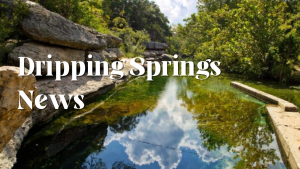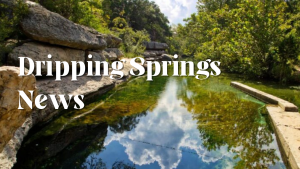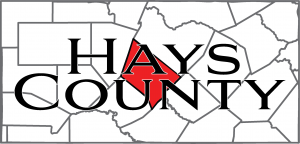Concerns are growing over a proposed update to a permit that could allow Buda to discharge 1.5 million gallons of treated effluent into a tributary that flows into an area reservoir.
Those issues came up March 21 as 15 to 20 private property owners relayed their opinions during a Texas Commission on Environmental Quality public meeting on the matter.
Buda originally applied with the TCEQ in 2015 for an update to its existing discharge permit from its wastewater treatment plant.
The update calls f...
Concerns are growing over a proposed update to a permit that could allow Buda to discharge 1.5 million gallons of treated effluent into a tributary that flows into an area reservoir.
Those issues came up March 21 as 15 to 20 private property owners relayed their opinions during a Texas Commission on Environmental Quality public meeting on the matter.
Buda originally applied with the TCEQ in 2015 for an update to its existing discharge permit from its wastewater treatment plant.
The update calls for increasing the total discharge of effluent to 3.5 million gallons, an increase of 1.5 million gallons from its current permit, between two different outfall locations.
The city currently has a permit that allows for them to discharge up to two million gallons of treated effluent from the city’s wastewater discharge permit into an unnamed tributary. That water then collects into the Soil Conservation Site 6 Reservoir in Kyle.
TCEQ placed a public notice in the Hays Free Press in February regarding the permit application.
Kyle resident Rose Byrd claimed Buda violated its TCEQ wastewater discharge permit by discharging effluent water onto private property.
Byrd claimed that, while Buda has a discharge permit to discharge over three miles north of where her property is located at the SCSS 6 reservoir, they do not have permission to discharge onto private property without compensating landowners accordingly.
“It doesn’t matter where it originates (discharged effluent water) it travels along private property,” Byrd said.
According to TCEQ’s discharge permit, the issuance doesn’t guarantee the permittee “the right to use private or public property for conveyance of wastewater” along the discharge route. Additionally, it is also the responsibility of the permitted to acquire property rights as may be necessary to use the discharge route.
Byrd claimed since Buda’s effluent discharge flows downstream and eventually reaches the reserivor, which belongs to private property owners, the city should be held liable for flooding damages due to impounded waters caused in part by its discharge.
However, a letter sent to Byrd from Buda Mayor Todd Ruge and W.E. West, Jr., Guadalupe Blanco River Authority general manager, said in part once the effluent is discharged in the outfall location, the water is no longer controlled by Buda, but falls into the hands of the state.
TCEQ media relations specialist Brian McGovern said in a later emailed interview that the city of Buda has an existing outfall point and a proposed outfall point where its effluent is discharged.
McGovern said if effluent from a treatment plant is discharged directly to water in the state, a permittee “would not need approval” to use the discharge route downstream.
“If the effluent from the wastewater treatment is discharged to a conveyance that is not water in the state, the permittee may need approval from the landowner,” McGovern said in the email.
According to the TCEQ website, “water in the state” is, “groundwater, percolating or otherwise, lakes, bays, ponds, impounding reservoirs, springs, rivers, streams, creeks, estuaries, marshes, inlets, canals … and including the beds and banks of all watercourses and bodies of surface water that are wholly or partially inside or bordering the state or inside the jurisdiction of the state.”
Ruge said he addressed the possibility of Buda using an alternative point of discharge for its effluent water, so as not to overwhelm residents downstream of the discharge point.
“We’re always open to looking for alternative discharge sites,” Ruge said.
But Ruge maintained the city was in “full compliance” with TCEQ regulations.
Buda public information officer David Marino said the public comment period attached to the permit application amendment has been extended 30 days from the public meeting.
However, Marino declined to comment on the issue until the public comment period has closed.













